The ACP Leadership Academy is a year-long program that offers useful knowledge to newly practicing and seasoned professionals alike, and allows them to reach hallmark achievements in the field of phlebology with constructive projects. Take a look below to see the 2015 inaugural class' most recent contributions.
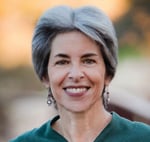 Leadership has always been natural for me – my parents were leaders and I learned by watching them. As president of a high school organization, I mobilized 4,000 girls to volunteer at prenatal care centers and realized that effective leadership allows us to enhance our impact in the world by inspiring others to contribute to a cause. As my passion for phlebology grew, it was natural to become involved in the ACP. Organizational involvement offers the chance to contribute to something meaningful and effect change in ways we cannot do alone. It allows us to develop talents and skills that enrich our lives so we can become more effective in our work, personal relationships and outside activities.
Leadership has always been natural for me – my parents were leaders and I learned by watching them. As president of a high school organization, I mobilized 4,000 girls to volunteer at prenatal care centers and realized that effective leadership allows us to enhance our impact in the world by inspiring others to contribute to a cause. As my passion for phlebology grew, it was natural to become involved in the ACP. Organizational involvement offers the chance to contribute to something meaningful and effect change in ways we cannot do alone. It allows us to develop talents and skills that enrich our lives so we can become more effective in our work, personal relationships and outside activities.
Many feel that leaders are “born.” Sadly, this misconception prevents some from considering leadership and others from becoming the leaders they could be. It’s true that some people have the personalities and experience to naturally inspire and lead. However, there is always an opportunity for growth, and almost anyone can become a leader if they put time and effort into it. Even after many leadership roles, through involvement in the ACP, I have grown personally and as a leader. We can always be better.
As the ACP became more complex, finding members to serve on our board and committees became challenging. Being a good leader requires a different skill set than being a good doctor, nurse, or sonographer. The visionary and enthusiastic John Mangold proposed the idea of a Leadership Academy, which seemed to be a great way of providing the ACP with future leaders.
We wanted a program based on best practices in leadership development. We also wanted participants to provide tangible benefit to the college in the form of a new project that would benefit the field of phlebology and allow them to use their new skills. Last November, eight participants and four mentors met for the first time to create individual leadership development plans and design their projects. Participant pairs subsequently met regularly by phone with their mentor to discuss monthly leadership topics and execute their projects, which include: Case of the Month; presentations for wound care centers, primary care doctors and OB/GYNs; VeinCast (a monthly podcast on topics of interest to the venous community); and a public education campaign about phlebology. Our dynamic leadership consultant, Mitch Simon, JD, MBA, led two retreats, monthly webinars, and provided coaching during the year. Topics included authentic communication, trust, negotiation, standing ovation presentations, and a variety of important leadership concepts.
While planning and executing their projects, each group had ample opportunity to use their newly acquired leadership skills, and it became clear how relevant these skills were in their practice, personal relationships and community involvements. I believe each member of the 2014-2015 ACP Leadership Academy gained a lot from their participation and is proud of their contributions to the field and the ACP. I’m grateful they decided to invest time and energy in gaining these skills, and am excited to see how they will contribute to our field in the years to come. I congratulate each of them and hope you will find their stories as interesting and inspiring as I do. – Helane Fronek, MD
Case of the Month
By Joe Jenkins, MD and Michael Di Iorio, MD
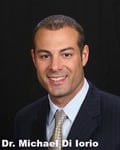
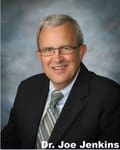
The Case of the Month is a website-based, clinical case series published exclusively on the ACP website to serve as an educational resource for ACP members. Monthly cases highlight a particular venous disease and treatment. This can also include complications and management of these complications. Submitted cases need not be rare and can serve as a review of current accepted practices. Participating in and submitting a case is open to physicians, U.S. technologists, nurses, mid-level providers, fellows, residents and students. We envision the Case of the Month to be a new avenue for learning, a source of continuing medical education and self-assessment, and a forum to share interesting and educational cases with colleagues. The Case of the month is also a new medium by which the college can assess the educational needs of its members so that new programs can be developed to address these needs.
Why we chose VeinCast project for ACP Leadership
MDI: As the chairperson of the ACP’s CME Education Development Advisory Committee, I am charged with the task of developing new CME programs for members to aid in this endeavor. I have always felt one of the best ways to learn is by working through clinical cases. This process can give great insight into what one really knows and what areas may need improvement.
JJ: I am the chairperson for the CME – Subgroup 4 – Online Continuing Medical Education of the ACP. For me, the idea of a Case of the Month evolved from a desire to create a new tool to gauge member knowledge and educational needs on a given topic that could then be applied in developing material to address these gaps.
How Case of the Month supports the ACP’s vision to advance vein care
The success of the ACP in accomplishing its mission to advance vein care depends primarily on its members being strong leaders, advocates and educators for the treatment of venous disease. As members, we are the representatives of the college and its mission to the local patient communities, physicians and legislation. The success of the Case of the Month Series also lies with the ACP’s members. Without the direct involvement of members, it will be difficult sustaining this great educational opportunity. The directions on how to submit a case for consideration can be found on the American College of Phlebology website.
How the Leadership Academy helped
JJ: I don't consider myself a natural born leader. I have always felt myself to be somewhat of a follower. The Leadership Academy has shown me my strengths as well as weaknesses. I have learned that, by being authentic and expressing my true cares, I am transforming into a good leader. This is a work in progress.
VeinCast
The unfiltered voice of the practicing vein physician
by Todd Hansen, MD and Albert Mulvehy, MD
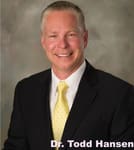
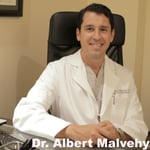
VeinCast is a monthly podcast for those involved in the treatment of venous and lymphatic disease. The podcast deals with topics related to vein care, practice management, new technologies and the wide range of issues physicians face practicing phlebology. It is a chance for us – two physicians dedicated to treating veins – to share the sort of ground level conversation we were having with our Leadership Academy peers and connect with the rest of our peers. It also gave us a platform to approach clinical and industry leaders to weigh in on certain topics. You can find the podcast on here.
Spotting the need for VeinCast
TH: I have been an avid Podcast connoisseur for a number of years. Having access to free information on topics of my choice delivered or accessed on my time has allowed me to make better use of commute times and exercise time - my most frequent choices for listening. It is like having access to a mentor whenever I want, and the topics available are unlimited - except regarding vein care. There was a series of interviews with some established clinicians centered around the topic of Best Vein Care, and there continues to be the Vein Center of New Mexico podcast which is for patients. (Recently, the ACP added another great podcast that is patient centered, called Healthy Veins, Healthy Legs.) Finding a kindred spirit in my fellow Leadership team member Albert Malvehy, MD, VeinCast was born.
Our Development process for VeinCast
When we set about putting together VeinCast, we started with a blank slate and a bunch of questions: Would we be targeting patients? Are we using this to proselytize for ACP? Are we focusing on clinical issues for docs? And how do we get musical interludes anyway?
One of the benefits of the Leadership Academy – outside of the leadership didactics – was the chance to meet our fellow docs and talk about all the issues we faced in our practices. It was like being at the Annual Meeting but with more natural networking and relationship building. There is a great sense of camaraderie when another doc says, “I have that problem too!” Both of us had gone through (are going through) the process of building a vein practice from scratch and there were issues we wanted to talk about.
The future of VeinCast
Our hope is that practicing vein physicians will identify with the topics and accessibility of the show and submit some of their own issues for us to explore in future episodes. For example, neither of us is employed by a corporate entity, but I’m sure listeners have some issues related to being an employed physician they want to talk about. If we can increase engagement within our own community, where we are talking peer-to-peer as opposed to talking top down, we think the show will be a great success.
How the Leadership Academy helped
AM: During the second onsite meeting, we covered negotiation. I went to business school and had built my practice from scratch, so I felt comfortable with negotiation. During the retreat, we talked about power during negotiation and the perception of power. I happened to be going through a negotiation during that time - one in which I felt practically powerless to the point where I thought I would either pay through the nose or not get the thing I was negotiating for. Taking a different perspective on it, I realized I actually had quite a bit of negotiating power; to a certain extent, I was the other party's only option. This completely changed the dynamic of the negotiation and was worth the cost of the Leadership Academy itself.
The Referring Physicians and Community Education Project
by Tom Wright, MD and Richard Basile, MD
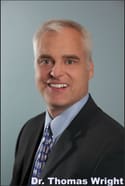
 This project involves the creation of five-minute PowerPoint presentation modules with 15 or fewer slides that could be viewed by interested physicians or lay people who would have the flexibility to review the presentation at their convenience over a work break. We created a core module, which covered general information about vein disease and its treatment that most primary care physicians would be interested in. Specialty modules were created for physicians in emergency medicine, wound care, and OB/GYN.
This project involves the creation of five-minute PowerPoint presentation modules with 15 or fewer slides that could be viewed by interested physicians or lay people who would have the flexibility to review the presentation at their convenience over a work break. We created a core module, which covered general information about vein disease and its treatment that most primary care physicians would be interested in. Specialty modules were created for physicians in emergency medicine, wound care, and OB/GYN.
Finally, we created a module to share with the lay public about the recognition of vein disease and advances in its treatment. By separating the information into modules, we could more easily disseminate it via flash drives. We focused on presenting graphics rather than text to facilitate rapid information transmission and reduce review fatigue.
Spotting a need for CME
As phlebologists, we know about the significant advances in our field and are excited to offer our patients more modern, effective and patient friendly treatments for vein disease. Over the years, one of the ways we tried to educate physicians in our community about these advances has been through scheduling meetings and giving presentations over lunch. Increasing awareness about these advances with the general community was accomplished by speaking at local community organizations like the local Chamber of Commerce or service clubs. These types of opportunities are increasingly hard to come by. A decrease in community organization membership and meetings has also led to fewer opportunities to increase awareness to the general public.
Tracking results and planning CME's future
We embedded hyperlinks in each PowerPoint module so we can track how many modules are watched and whether the person found the information useful. Our ultimate goal is to host the presentations on the ACP website so they can be easily shared via an emailed link and we will continue to get real time information on their usefulness.
How the Leadership Academy helped
TW: During the course of the Leadership Academy, we completed many reading assignments and exercises on how to become better leaders, how to build trust in the teams that we lead, how to better connect with our team members, and how to get members of our team to commit more fully to the goals and mission of our practice. Each of these assignments added valuable skill and understanding to our leadership tools. Over the course of the year the members of my team became more engaged with their tasks, their fellow team members, and more committed to the goals and mission of our practice. These changes were felt and reported by all of the members of the team. I have gained greater poise under pressure. I am less apt to blame myself in situations beyond my control. I can take a step back, become more aware of myself, and it is easier to see the big picture.
RB: With the exception of leading by example, I do not consider myself a natural born leader. This component [leading by example] remains important, ut is too passive, and not enough on its own for one to excel. I had been missing the more active and critical components of leadership. Reliability, sincerity, competence and care are the critical "active" components that must be demonstrated by you, and disseminated among your team, in order to reach a higher level and become an effective leader. Communication and development of trust remains the linchpin of this ability.
In order to become an effective leader one must manifest several important traits on a consistent basis. These vary with the individual, but always include some degree of sincerity, commitment, reliability and indication that you truly care about the entity or person. Regular and genuine communication seems to most often be the missing piece of the puzzle. It is a great starting point and the basis for development of trust which is the foundation of effective leadership.
ACP Embarks on Grassroots Movement of Public Awareness of Vein Disease

 As a former educator myself, I have always had an interest in public education. This interest in public education and awareness of phlebology led me to design my Leadership Academy project, which focused on working with PBS to air “Vein Health,” a previously recorded program hosted by Dr. Helane Fronek, as well as the creation of the “Vein Care = Phlebology” tag logo, which has already been implemented by the ACP and many of its members.
As a former educator myself, I have always had an interest in public education. This interest in public education and awareness of phlebology led me to design my Leadership Academy project, which focused on working with PBS to air “Vein Health,” a previously recorded program hosted by Dr. Helane Fronek, as well as the creation of the “Vein Care = Phlebology” tag logo, which has already been implemented by the ACP and many of its members.
Vein Health challenges abound
Getting PBS to consider airing the program has been challenging on many levels, and so was working with ACP membership to see the endeavor through.
It took much pursuit and a variation of tactics. The frustration came from getting the local PBS stations to even respond to our requests, despite multiple emails and phone calls. Going to my own local station was a little more successful in terms of at least getting someone to respond by phone. I think this occurred because I was practicing in the area. Had I been outside their viewing region, they likely would not have responded at all.
Life doesn’t stop after group practice
As the ACP Leadership program began to reach its end, I made a career-altering decision to leave the safety of my group practice to start my own. I wanted to practice medicine the way I was trained to, which entails doing what’s best for the patient. I also wanted more control of my schedule and did not want to practice in a corporate environment.
As an interventional radiologist, we are typically tied to a hospital-based group, so to go out on your own is risky because there is no safety net to fall back on. The Leadership Academy gave me the courage and interest to go out on my own, and start something that I should have done a long time ago. With the help from two of the Academy Mentors, Nick Morrison MD and Diana Neuhardt RVT, I have a really great start so far. I really appreciate the opportunity to participate in this program.
Lessons learned with Vein Health
I have realized that it will take the efforts of our entire ACP membership for this grassroots program to be successful in reaching the public about vein disease.
Of all the lessons I learned in the ACP Leadership Academy, though, one that stands out came from my mentor Mitch Simon. He taught me to never let the fear of failure prevent you from pursuing your dreams. I know it sounds cliché, but now I know exactly what those words mean. Although starting my own practice has taken all of my time and energy, it has been rewarding.
Comments from the Leadership Mentors
Each team of participants was inspired and mentored by an experienced ACP leader who also had a lot to say about the benefits of the Leadership Academy for them, personally.
Diana Neuhardt, RVT, President, Compudiagnostics, Inc. : One of the most important aspects of the academy was learning “how to have an authentic conversation.” The participants were required to role play about a situation they were struggling with. We went through a step-by-step process of how to face individuals and problem solve. Once we practiced a few times, the situation and solution became very clear and “personalities” were not an issue. Having the ability to be authentic is an essential quality in life. So overall, understanding how to have an authentic conversation affects every aspect of your life, both at work and at home.
Robert Worthington-Kirsch MD, Director of Research, Vein Clinics of America: I have used the skills taught in the Leadership Program to encourage my staff and keep them focused on our primary goal, providing the best possible care to our patients. My team has grown in areas of unity, common vision, and individual efficacy, and is functioning much better than it has in the past. Much of this growth is due to the skills i have learned through the Leadership Academy.
These skills will also be critical in negotiating the issues that will arise as I take on a new role as Director of Research for VCA. I am grateful for the education and insight that the Leadership Academy has provided.
Cindy Asbjornsen DO, Founder, Vein Healthcare Center: The Leadership Academy helped me to focus on what I believe is most important. When I started the program I knew I wanted a different balance in my life but I wasn't sure how to get there. The Leadership Academy helped me to gain clarity and direction, as well as motivation, to take the necessary steps. I learned how to restructure my practice, to regroup and get what I want. Today I feel like my practice is better than ever. I'm so happy with my days at the office. I come home happy. I come home in time to spend time with my family! I focus on what I care about, not what I think I should be worried about. This year everything came together for me. The Leadership Academy has truly been invaluable.
Nick Morrison MD, President International Union of Phlebology: In discussions with ACP leaders, one of the primary goals of the proposed Leadership Academy was identification of practitioners amenable to mentoring in order to enhance the leadership capabilities of such individuals. As a mentor in the Leadership Academy, I can state unequivocally that this goal was achieved. Only time will tell but I am very encouraged about the program and I look forward to the accomplishments of the participants in the inaugural class as they progress to leadership positions within the ACP.


